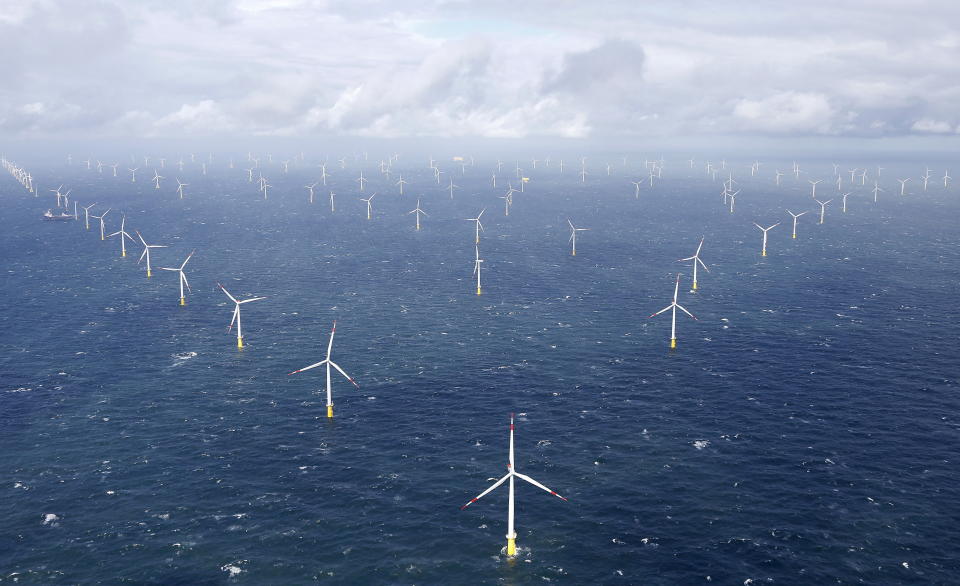Climate change: Government investing 'only 12%' of what is needed to reach net-zero

The UK is off course to meet its target of net zero carbon emissions by 2050, but there is still an opportunity to improve those prospects.
According to the Institute for Public Policy Research (IPPR), the UK government has not yet delivered the scale of investment needed to ensure a low-carbon future.
On the eve of what would have been the start of the United Nations Climate Change Conference (COP26) in Glasgow, the progressive think tank is calling on the government to lead by example on the world stage by taking ambitious action.
The government’s upcoming 10-point plan to bring down emissions could set precedent for other nations, the IPPR said.
A new analysis shows that over the course of this parliament the government has committed to investing just 12% of what is needed to meet their net zero emissions target.
The think tank estimates that £33bn ($43.4bn) a year in additional annual investment is needed to meet the net zero target, but only around £4bn annually has so far been committed.
READ MORE: BP CEO says net zero plan 'not charity'
The green homes grant, investment in cycling, walking infrastructure and in offshore wind announced earlier this year show the government is moving in the right policy direction, but action at a greater scale and pace is needed, according to IPPR.
Other measures that should be on the agenda to cut emissions are decarbonising homes and buildings and investment in low carbon transport. The IPPR calculates that an additional £10.3bn is needed a year to improve public transport services and efficiency, as well as boosting cycling and walking, while four times the current annual spend would bring decarbonising homes in line with targets.
Job creation schemes also have potential for an injection of green cash. The think tank has previously calculated that 1.6 million jobs could be created up to 2030 through green investment.
Carsten Jung, IPPR senior economist, said: “The pandemic will leave the UK economy weaker and unemployment starkly higher. But, with forward-looking policies, the country can bounce back in the new year. Making future-proof investments that tackle the climate crisis can boost business, generate jobs and provide people with income security.”
Among the green jobs opportunities could be: Work improving the carbon footprint of homes and buildings; nature restoration; transport and infrastructure; and work to make industry greener.
Watch: The government’s £2bn Green Homes Grant scheme explained
The IPPR report also emphasises the importance of ensuring the transition to a net zero economy is done fairly. The think tank has previously proposed a Just Transition Fund amongst other measures to support communities negatively disrupted by the changes.
The greatest growth in green jobs is expected to be in the North West, the East Midlands and Yorkshire and the Humber. IPPR also notes that investment in low emission housing would have a high impact on job creation in the North West and the South East (outside London).
Luke Murphy, IPPR associate director, said: “As the host of COP26 in 2021, the UK can use its domestic policy ambition to help inspire the rest of world and leverage greater ambition and action from other developed countries.
“As the fifth-largest contributor to cumulative global greenhouse gas emissions and given its unsustainable global environmental footprint, the UK also has a responsibility to take bolder action.”

 Yahoo Sports
Yahoo Sports 